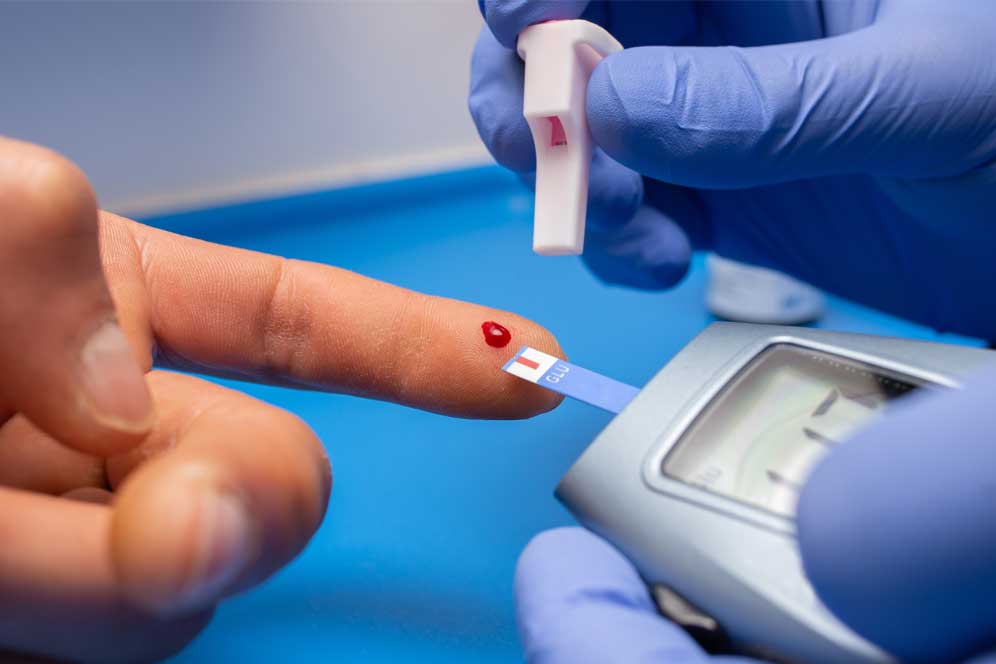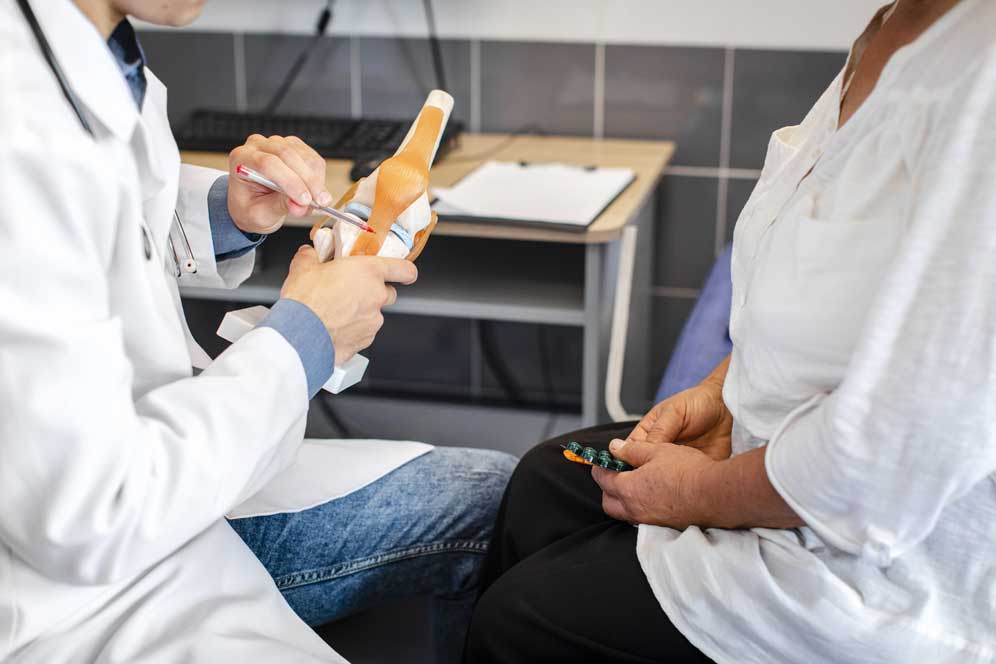
12 Aug 2025
Brain Health: A Practical Guide to Keep Your Brain Healthy Every Day
Your brain is the control centre of your body — it manages thoughts, emotions, memory, and every function that keeps you alive. Yet, it’s often overlooked when it comes to daily health habits. Just like your heart or muscles, your brain needs consistent care and the right lifestyle choices to stay strong and sharp throughout your life.
Whether you’re a student, working professional, or retiree, understanding how to keep your brain healthy is the first step to better focus, memory, and long-term neurological well-being. And when specialized medical care is needed, centres like Arora Neuro Centre in Ludhiana provide expert diagnosis, treatment, and guidance to protect your brain health.
Why Brain Health Matters
Brain health is about more than just avoiding neurological diseases — it’s about maintaining cognitive functions like memory, problem-solving, and emotional balance. Poor brain health can impact your productivity, relationships, and quality of life.
With age, the brain naturally changes, but certain habits can slow this decline and even strengthen neural connections.
Daily Habits to Improve Brain Health
1. Stay Physically Active
Regular exercise improves blood flow to the brain, delivering oxygen and nutrients essential for brain cell function. Activities like walking, swimming, or cycling release endorphins, reduce stress, and improve memory.
Tip from Arora Neuro Centre: Even 30 minutes of brisk walking five days a week can reduce the risk of stroke and improve overall brain performance.
2. Eat a Brain-Boosting Diet
Nutrition plays a major role in how to improve brain health. Focus on:
-
Omega-3-rich foods (salmon, walnuts, flaxseeds)
-
Leafy greens (spinach, kale)
-
Berries (blueberries, strawberries)
-
Whole grains and lean proteins
Avoid: Highly processed foods, excess sugar, and trans fats, which can damage brain cells over time.
3. Prioritize Quality Sleep
Sleep is when the brain processes information, clears toxins, and forms memories. Adults should aim for 7–9 hours of uninterrupted sleep.
Brain Health Tip: Maintain a consistent sleep schedule and avoid screen time at least 30 minutes before bed.
4. Challenge Your Mind
Keep your brain active with:
-
Puzzles and crosswords
-
Reading and writing
-
Learning a new language or skill
-
Playing musical instruments
Why it works: Mental stimulation builds cognitive reserve, which helps protect against memory loss.
5. Manage Stress
Chronic stress releases cortisol, which can damage brain cells and shrink memory-related areas like the hippocampus. Practices like meditation, yoga, and deep breathing help regulate stress levels.
6. Stay Socially Connected
Engaging with friends, family, and community groups stimulates emotional and cognitive areas of the brain. Social isolation, on the other hand, increases the risk of dementia.
7. Protect Your Brain Physically
Head injuries can have lasting effects on brain function. Wear helmets when biking, secure your home to prevent falls, and use seat belts while driving.
Arora Neuro Centre Advice: Early evaluation after head trauma can prevent long-term complications.
Recognizing Warning Signs
Knowing when to seek medical help is crucial. Symptoms that require immediate attention include:
-
Sudden weakness or numbness
-
Difficulty speaking or understanding speech
-
Sudden vision problems
-
Severe, unexplained headaches
-
Loss of balance or coordination
-
Memory loss or confusion
If you experience any of these symptoms, seek urgent care from a neurologist.
How Arora Neuro Centre Supports Brain Health
As a leading neuro hospital in Ludhiana, Arora Neuro Centre specializes in the diagnosis, treatment, and rehabilitation of brain and nervous system disorders. Their team of experienced neurologists and neurosurgeons combines advanced technology with a patient-first approach.
Key Services for Brain Health at Arora Neuro Centre:
-
Stroke Prevention & Treatment: 24/7 emergency stroke unit with clot-busting therapies and neuro-critical care.
-
Neurosurgery: Minimally invasive brain and spine surgeries using neuronavigation and neuro-microscopes.
-
Neuro Diagnostics: High-resolution MRI, CT scan, EEG, EMG, and nerve conduction studies.
-
Memory & Cognitive Clinics: For early detection of dementia and Alzheimer’s disease.
-
Neuro Rehabilitation: Physiotherapy, occupational therapy, and speech therapy for recovery after brain injuries.
Why Patients Trust Arora Neuro Centre:
-
Highly skilled neuro specialists with decades of experience.
-
Advanced infrastructure tailored for neurological care.
-
Comprehensive rehabilitation programs under one roof.
-
Patient education on lifestyle habits to improve brain health.
Expert Tips from Arora Neuro Centre on How to Keep Your Brain Healthy
-
Act Fast in Emergencies: In cases of stroke, early treatment within the “golden hour” saves brain cells.
-
Get Regular Check-Ups: Especially if you have risk factors like diabetes, high blood pressure, or family history of neurological conditions.
-
Balance Physical and Mental Activity: Both are equally important for sustaining long-term brain health.
-
Don’t Ignore Minor Symptoms: Persistent headaches, dizziness, or memory lapses deserve medical evaluation.
-
Educate Yourself: Understanding your brain’s needs empowers you to make healthier choices.
When to Visit a Neuro Specialist
While daily habits can improve brain health, professional help is essential for:
-
Unexplained memory loss
-
Recurrent headaches or migraines
-
Seizures
-
Post-injury recovery
-
Movement disorders like Parkinson’s disease
-
Speech or vision changes
Arora Neuro Centre offers comprehensive consultations, ensuring patients receive accurate diagnoses and timely treatment.
Conclusion
Learning how to keep your brain healthy is an investment in your future well-being. Small, consistent lifestyle changes — such as exercising, eating a balanced diet, managing stress, and staying socially active — can make a huge difference.
However, when neurological concerns arise, specialized care is non-negotiable. Arora Neuro Centre in Ludhiana stands as a trusted partner for those seeking expert guidance on how to improve brain health, combining cutting-edge technology with compassionate care.
Your brain works for you every second of your life — it’s time to return the favor by protecting it every day.
Recent Blogs
-

We will work with you to develop individualised care plans
Arora Neuro Centre maintains awareness about the vital association between diabetes and neurological health issues where diabetic patients face greater stroke susceptibility.
-

How Diabetes Affects Brain Health: The Hidden Risks
Typically diabetes causes problems with blood sugar management as well as negative effects on heart organs and kidneys.
-

Can Diabetic Neuropathy Be Prevented? What You Need to Know
One of the typical complications arising from diabetes affects nerves through diabetic neuropathy which results in various symptoms from muffled sensation and tingles to intense pain.
-

Psychotherapy for Anxiety: Techniques That Really Work
Anxiety is one of the most common mental health conditions in India and around the world. It can affect anyone, whether you’re a student under pressure, a working professional managing deadlines, or a parent juggling multiple responsibilities
-

Physiotherapy vs. Chiropractic: What's Really Differentiating Them?
Physiotherapy and chiropractic care both aim to relieve pain and improve mobility, but they differ in approach. Physiotherapists focus on exercise, movement, and rehabilitation, while chiropractors primarily use spinal adjustments to treat musculoskeletal issues. Understanding these differences can help you choose the right treatment.
